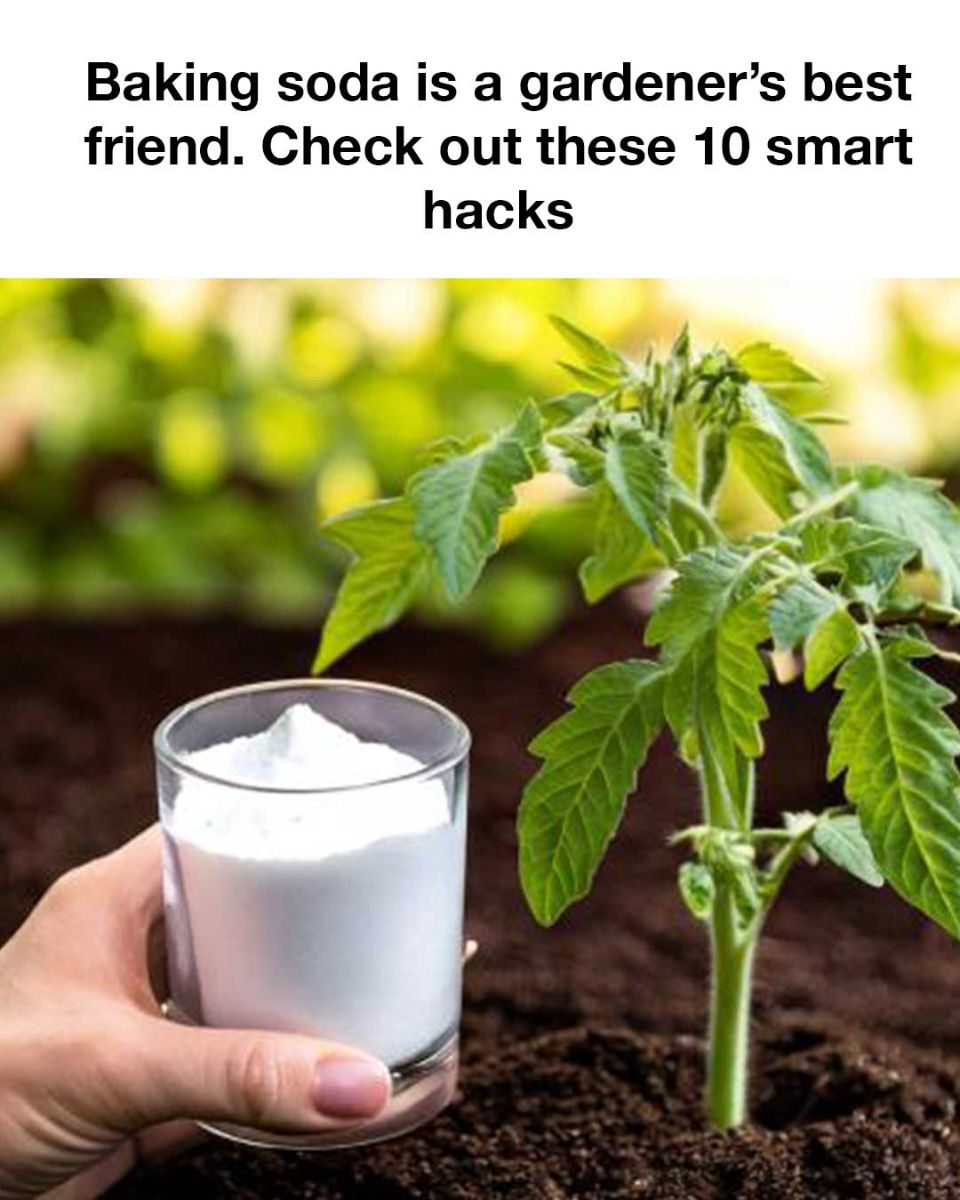ADVERTISEMENT
Baking soda, also known as sodium bicarbonate, is a common household item renowned for its versatile uses beyond the kitchen. In the realm of gardening, it serves as an eco-friendly and cost-effective solution to numerous challenges faced by gardeners. With its antifungal, pest-repelling, and cleaning properties, baking soda is a safe alternative to harsh chemicals and synthetic products. This article explores ten smart hacks that demonstrate why baking soda is indeed a gardener’s best friend.
Enhancing Soil Health with Baking Soda
Soil acidification can hinder plant growth and health. Baking soda helps to neutralize soil acidity, promoting a balanced pH level, which is crucial for the optimal absorption of nutrients by plants. By sprinkling a small amount of baking soda onto the soil and watering well, you can create a more favorable growing environment for alkaline-loving plants, such as hydrangeas and lilacs.
Baking Soda as a Natural Pest Repellent
Pests can wreak havoc in a garden, but baking soda offers a simple deterrent. By mixing baking soda with a few drops of liquid soap in water, you can create a spray that repels insects like aphids and spider mites. This natural solution is gentle on plants while effectively safeguarding your garden against unwanted visitors.
Controlling Fungal Diseases Using Baking Soda
Fungal diseases such as powdery mildew and black spot can damage and even kill plants if left unchecked. Baking soda’s antifungal properties help fight these problems. A solution of one tablespoon of baking soda, one tablespoon of vegetable oil, and one tablespoon of dishwashing liquid mixed in a gallon of water can be sprayed on affected plants, inhibiting fungal growth and promoting plant health.
Utilizing Baking Soda for Plant Growth Improvement
Baking soda can potentially improve plant growth by balancing the soil pH and thus maximizing nutrient uptake. However, it’s essential to use it in moderation, as excessive use can lead to issues. Regularly testing the soil and carefully adjusting the baking soda application can lead to thriving plants with more robust growth.
Deodorizing Garden Compost with Baking Soda
Compost piles can produce unpleasant odors during the decomposition process. Sprinkling a thin layer of baking soda over the compost helps neutralize these odors, making your compost pile a more pleasant presence in the garden. However, it’s crucial not to overdo it, as too much baking soda may hinder the microbial activity necessary for decomposition.
Baking Soda’s Role in Alkalinity Adjustment
For gardeners struggling with acidic soil conditions, baking soda acts as a mild alkali that can incrementally raise the pH level of the soil. This adjustment can enhance the growing conditions for plants that prefer slightly alkaline environments. A gentle application of baking soda can gradually bring about beneficial changes, aiding plant growth and vigor.
Continued on next page
ADVERTISEMENT
